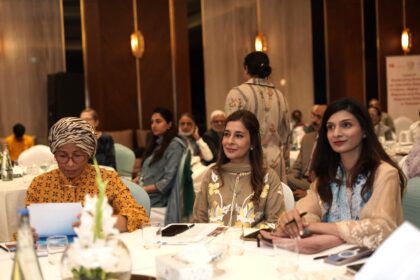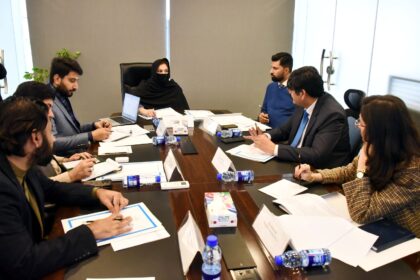The Parliamentary Caucus on Child Rights met at Parliament House in Islamabad to press for stronger legislative measures to achieve a polio-free Pakistan. The session, chaired by Convenor Dr. Nikhat Shakeel Khan, was attended by parliamentary secretaries Rana Ansar, Farah Naz Akbar and Saba Sadiq, Member Dr. Shazia Sobia Aslam Soomro, Sindh Parliamentary Secretary for Health Muhammad Qasim Soomro, the National Assembly draftsman Tahir Farooq, officials from the Health and Finance divisions and representatives of civil society.
Dr. Nikhat Shakeel Khan urged urgent laws to eradicate Wild Polio Virus and described polio elimination as both a constitutional and moral responsibility. She highlighted priority measures including mandatory vaccination, deterrents to vaccine refusal, state support for children affected by polio and the drafting of a comprehensive Polio Eradication Act. The convenor reiterated the caucus’s commitment to unified action, strengthened oversight, harmonized provincial legislation and nationwide awareness efforts to rebuild trust in vaccines for Polio Pakistan.
Capt. (R) Anwar-ul-Haq, National Coordinator of the Polio Program at the Ministry of Health, presented current epidemiological findings and noted an overall decline in WPV1 cases nationwide, with no cases reported since September 2025. He warned, however, of rising detections concentrated in South Khyber Pakhtunkhwa, which accounts for over half of recent cases. His briefing included year-wise trends for 2021–2025, the identification of five priority zones across the country and a review of provincial challenges and progress in vaccination drives.
Participants raised concerns about virus spread linked to population movement, gaps in federal–provincial coordination, inadequate training for frontline workers, weak monitoring in peripheral districts and growing parental refusal in high-risk areas. In response, Capt. Anwar-ul-Haq urged intensified focus on South KP as well as Karachi and Hyderabad, naming these areas as having the highest refusal rates, and stressed that routine immunization, nationwide campaigns and sustained community engagement are central to reversing hesitancy.
Delegates recommended a child-centred, community-driven approach that gives extra attention to underweight and medically vulnerable children to ensure successful immunization. The creation of mothers’ committees at the grassroots level was proposed to counter misinformation and bolster vaccine acceptance. Other recommendations included strengthening the cold-chain, improving monitoring and accountability for polio workers, considering vaccination of young adults who could act as carriers and expanding public awareness through media and storytelling-based campaigns.
The meeting concluded with a clear call for legislative incentives that encourage vaccination rather than punitive measures, aiming to build parental confidence and reinforce trust in the immunization process. Lawmakers and health officials signalled readiness to translate the caucus recommendations into draft legislation and coordinated action to accelerate progress toward a polio-free Pakistan.











